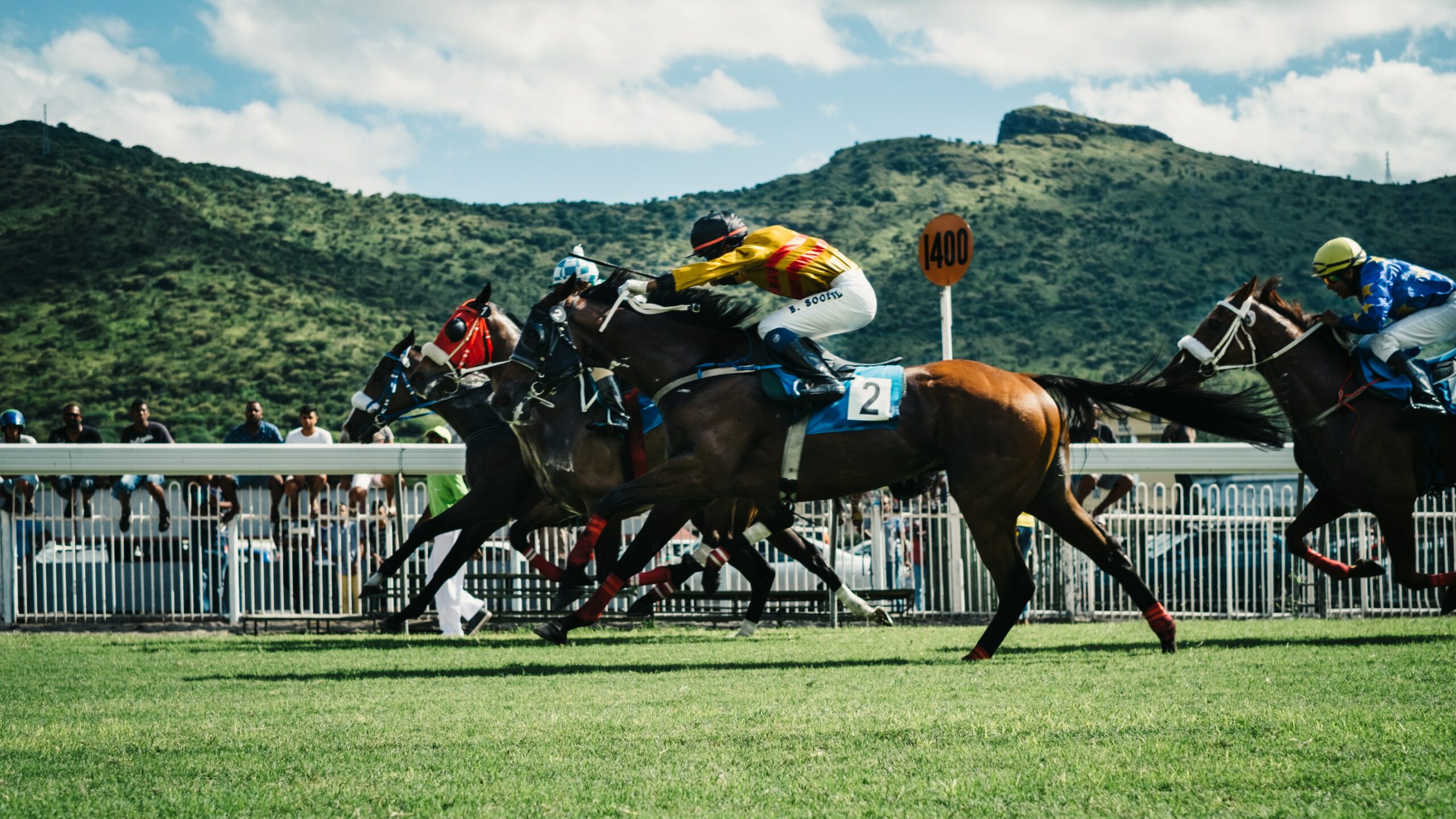Horse Racing Rules – Learn how to win Horse Racing

Horse racing, a thrilling equestrian sport, dates back to ancient times, with origins traced to nomadic tribesmen in Central Asia. Thought to have begun around 4500 BC, horse racing has evolved into a worldwide phenomenon, captivating spectators with its speed, elegance, and competitive spirit. From the first recorded races to the modern-day spectacles at prestigious tracks, the sport continues to hold a special place in the hearts of enthusiasts and bettors alike.
![]()
How to win Horse Racing
Winning horse racing involves a combination of factors, including selecting the right horse with a strong track record and form, a skilled jockey, and a well-prepared racehorse. Studying past performances, track conditions, and understanding race strategies are essential for making informed betting decisions. Additionally, a bit of luck and timing play their part in achieving success on the racecourse.
Requirements
- Well-trained racehorses with the physical ability and stamina to compete in races.
- Experienced and skilled jockeys capable of handling and guiding the racehorses effectively.
- Adequate facilities, including race tracks, stables, and veterinary care, to maintain the health and condition of the horses.
- A regulatory body to ensure fair competition, enforce rules, and maintain the integrity of the sport.
- Proper safety measures, such as protective gear for jockeys and safety protocols for both horses and riders, to minimize the risk of injuries during races.
Objective
The primary objective of horse racing is to determine the fastest and most skilled horse and jockey combination in a competitive setting. It is a sport that showcases the athleticism, speed, and endurance of racehorses while providing entertainment for spectators and offering opportunities for betting. Horse racing also holds cultural and historical significance in various regions around the world.
Scoring
- The winner of the race is the horse that crosses the finish line first, followed by the subsequent placings (second, third, and so on).
- Horses are typically assigned weight to create a more equitable race based on their past performance and ability.
- Races can have different classes and distances, with each class representing the level of competition and the quality of the horses participating.
- Handicapping is a method used to predict race outcomes and set betting odds based on various factors, such as past performance, jockey ability, and track conditions.
- Horse racing statistics and records are maintained to analyze past performance and guide bettors in making informed decisions.
Rules Of Horse Racing
Some Horse Racing rules you must know are as follows:
- Horses and jockeys must adhere to the race distance and track layout specified for each race.
- Use of performance-enhancing drugs or substances that could influence the race outcome is strictly prohibited.
- Horses must start from designated starting gates or positions and not cross the starting line before the race begins.
- Jockeys must follow race instructions, avoid dangerous riding, and not impede other horses or riders during the race.
- The first horse to cross the finish line is declared the winner, and subsequent placings are determined by the order of finish.
![]()
Frequently Asked Questions
- How long is a typical horse racing track?
The length of a horse racing track can vary, but most tracks used for thoroughbred racing are around 1 mile (1.6 kilometers) in length. - What is the Triple Crown in horse racing?
The Triple Crown consists of three prestigious races in the United States: the Kentucky Derby, the Preakness Stakes, and the Belmont Stakes. Winning all three races is a highly coveted achievement. - How fast can racehorses run?
Racehorses can reach speeds of up to 40-45 miles per hour (64-72 kilometers per hour) during a race, depending on the horse’s breed and distance of the race. - Can anyone own a racehorse?
Yes, anyone can own a racehorse. Ownership can range from sole ownership to partnerships or syndicates involving multiple individuals. - How are horses prepared for a race?
Horses undergo rigorous training to prepare for races, including regular exercise, conditioning, and practice runs on the track. - How do jockeys control the horses?
Jockeys control the horses using reins attached to the bit in the horse’s mouth. They guide and direct the horse by applying pressure to the reins and shifting their weight. - What are the risks to horses in racing?
Racing involves some risks, including the possibility of injuries during races. However, proper training, veterinary care, and safety measures aim to minimize these risks. - Is horse racing a dangerous sport for jockeys?
Horse racing can be physically demanding and carries inherent risks for jockeys, such as falls and collisions. However, jockeys are well-trained and wear protective gear to reduce the risk of injury. - How do I bet on horse races?
Betting on horse races can be done at racetracks or through off-track betting facilities. You can place bets on individual horses to win, place, or show, or participate in exotic bets like exactas and trifectas. - Are there age restrictions for jockeys in horse racing?
Yes, there are age restrictions for jockeys in most jurisdictions. Generally, jockeys must be at least 16 years old to compete in races, and there might be additional weight requirements for younger jockeys.